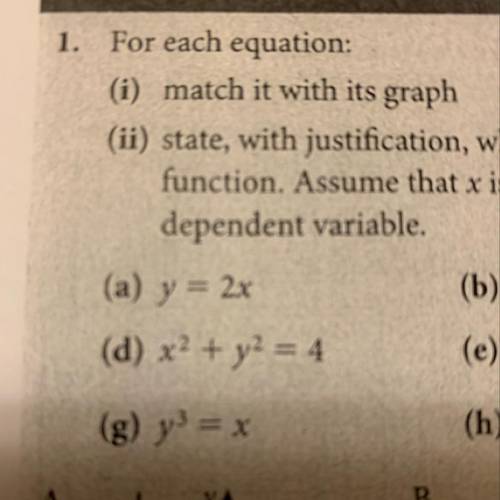He graph of f(x) = |x| is stretched by a factor of 0.3 and translated down 4 units. which statement about the domain and range of each function is correct? the range of the transformed function and the parent function are both all real numbers greater than or equal to 4. the domain of the transformed function is all real numbers and is, therefore, different from that of the parent function. the range of the transformed function is all real numbers greater than or equal to 0 and is, therefore, different from that of the parent function. the domain of the transformed function and the parent function are both all real numbers.
Answers: 3
















